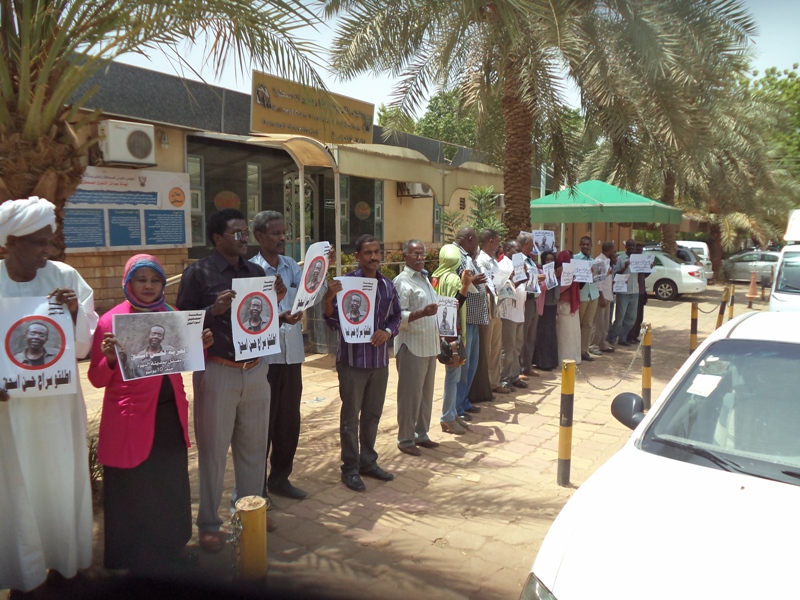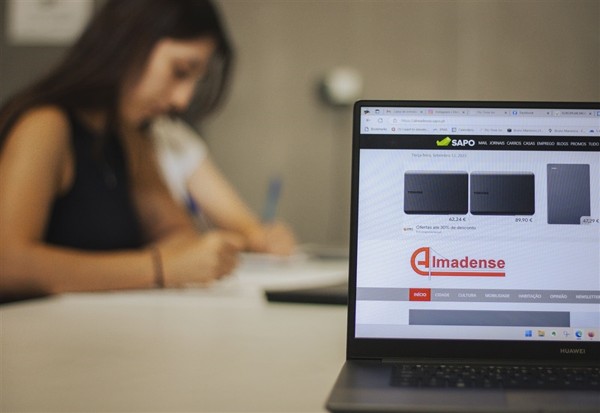Beginning early last April, observers of the press situation in Sudan have monitored the emergence of a new trend in which security services have tightened their grip on newspapers and stifled their ability to breathe.
Ever since, the Sudanese National Intelligence and Security Service (NISS) has doubled its already harsh punishment against newspapers defying its stiff control by again turning to post-print confiscations as a punitive measure. Although the Sudanese Security apparatus previously only confiscated defiant newspapers once, it has now doubled the procedure by impounding two consecutive issues, persistently toughening the punishment by doubling the economic losses the confiscated newspapers incur.
On April 12 and 13, the NISS confiscated the Al-Taghieer newspaper for two consecutive days. On April 17 and 18, NISS also confiscated the Al-Saiha newspaper for two successive days, and on April 22 and 24 the NISS confiscated the Akhir Lahza daily. Over the course of five days earlier this month – May 9, 10, 12, 13 and 16 – the NISS confiscated the Al-Jareeda newspaper. That was followed on May 21 and 22 by the confiscation of the Al-Mostaqila daily, then by the confiscation of the daily Alwan on May 29 and 30.
Each confiscation in the ongoing series by the NISS’ “Information Department” was executed without a judicial warranty or court order, and without giving any reason. However, the reason was later given by Sudanese President, Omar Al-Bashir, who said that he “will assume the media file by himself”.
The Sudanese government deals with the media and press file as a security file, which was assigned to the NISS. That agency established a dedicated unit to monitor and control newspapers and mass media, despite the existence of other devoted government institutions handling media affairs. They include the Ministry of Information, the National Council for Press and Publications and the press courts, and prosecutors’ offices and others. However, they all seem to be no more than doll institutions or playthings, given the security services’ ruthless control over the press and the mass media.
It seems that after the Sudanese president took over the media file himself, the goal he has endeavoured to achieve in the field of the media is to silence all critical voices, and even the moderate voices calling for political reform. Most of the newspapers that have been confiscated and angst-ridden during the past few months are pro-government newspapers and close to the ruling National Congress Party (NCP), or owned by people close to the ruling party or NCP members. The Akhir Lahza daily and the Al-Taghieer newspaper are owned by the Minister of Health in Khartoum State, Mamoun Hemaida, and the Al-Saiha daily is owned by the maternal uncle of Sudan’s president.
The new course of action for muting the critical press has taken an economic dimension by virtue of material attrition; the infliction of heavy losses on newspapers through successive confiscations has forced them to eventually close down or submit and implement the government’s policies. The Sudanese government is working on the application of what we can call a policy of economically exhausting critical newspapers based on two axes: first, successive confiscation, and second, depriving them of government advertisements, thereby controlling the income of newspapers.
Money is the lifeblood of the newspaper industry and it is known that the post-print confiscation of newspapers inflicts heavy financial losses for which it is difficult and, in some cases impossible, to compensate. The Al-Jareeda newspaper announced early this month that it had lost 60,000 Sudanese pounds (approx. €8,860) due to the successive confiscations. In a country suffering through an economic recession, the loss of that large of a sum of money could lead to a paper’s final closure.
In addition to direct losses relating to the costs of printing, rents of premises, wages of journalists and employees, electricity and water bills, taxes etc., there are some indirect or hidden losses. A primary example is the loss inflicted by the flight of advertisers from newspapers that are successively confiscated to those allowed to continue publishing regularly. This flight may be voluntary, but it also can be compulsory, as in the case of efforts to deprive critical newspapers of revenue from government advertising.
It is well known that the newspapers’ economic viability relies on advertisements. In the past, newspapers used to attract advertising through skilful employees and ads representatives. However, today ads are distributed to newspapers through an advertising agency that is a subsidiary of the Ministry of Information. The company, Aqmar Company for Advertising, has become a new mechanism for silencing critical newspapers and those with whom the government is discontented. The Sudanese information minister, Ahmed Bilal Osman, said in an interview with a local newspaper last month that his Ministry would deprive “undisciplined” newspapers of government ads; doing so will inevitably lead to dire consequences, such as the newspapers’ closure.
In addition to this new trend, which is based on the financial and physical attrition of newspapers and their economic exhaustion, there are still other forms of systematic repression of the freedom of the press. The strict control and the pre- and post-print censorship of newspapers and mass media send messages to newspapers’ editors-in-chief not to take up issues considered by the security apparatus to be beyond “red-lines” related to “national security”.
But the expanding circle of “red-lines” now includes a broad spectrum of political, human rights, economic and social issues that are not related to national security, such as governmental corruption, human rights abuses and the war in Darfur, and the deterioration of the economy. Moreover, the NISS is gradually continuing to expand that circle to include any criticism of government policies. In brief, the NISS does not want to hear any voice but its own echoed in newspapers, and it seems to have no hesitation to suppress and silence critical voices.
Abdelgadir Mohammed Abdelgadir is a freelance journalist, researcher and human rights analyst based in Khartoum. Awarded Human Rights Watch’s Hellman/Hammett Award in 2012 for his commitment to free expression in the face of political persecution, he was a fellow at the Stanford Center on Democracy & Development and the Rule of Law and the U.S. State Department’s International Visitor Leadership Program (IVLP). Abdelgadir is the author of several reports on human rights in Sudan as well as two books documenting a wide-range of violations of press freedom by Sudanese authorities.
The opinions and views expressed in this article are those of the author and do not necessarily reflect those of the International Press Institute.



